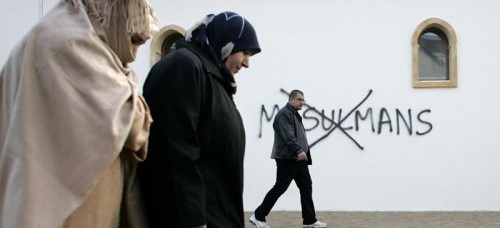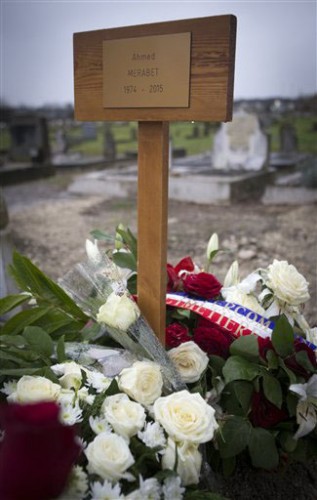
After the horrific terror attack on the Charlie Hebdo office and other sites in Paris, millions around the world united to demonstrate solidarity for those 17 people who died in the attacks, as well as to express appreciation for free speech.
Lost among the chaos of such solidarity, however, was the acknowledgment of the many Muslims who faced backlash in the aftermath of the al-Qaida-tied attack.
The Union of Islamic Organizations in France claimed there had been more than 50 anti-Muslim attacks in France since the terror incidents, including assaults on French Mosques with firebombs and grenades. Countless other instances of taunting and threats have also occurred since the attacks.
“It often feels necessary for a nation to chase its identity in the face of a disaster, and part of that unfortunately all too often involves backlash against those who get lumped together with the perpetrators,” Amina McCloud, a DePaul Islamic world studies professor, said.
Backlash against Muslim and Arab citizens is, in fact, nothing new or shocking to the Western world. In the United States, there had been numerous attacks on Arabs or “Arab look-alikes” following the 9/11 attacks, with Human Rights Watch reporting a 1,700 percent increase in American hate crimes in the year following that tragedy. Texan Mark Stroman was convicted of murdering a Pakistani and Indian in the days following 9/11, as well as for blinding a third man who was Bangladeshi.
“I did what every American wanted to do after Sept. 11 but didn’t have the nerve,” Stroman said after his arrest.
Rhetoric against Muslims in other nations has also risen in the wake of the international focus on terrorism; U.K. publication The Independent reported that about half of Britain’s Mosques have been attacked since 9/11.
“As a young 20-something Muslim woman, I’ve realized that we’re the generation that has to constantly apologize for 9/11, even though we were children when the event happened,” Ainee Fatima, a DePaul senior and Islamic world studies student, said. “People ask us, ‘why don’t you speak out about (extremism)?’” Fatima said. “Open your eyes and ears. Many of us are speaking up.”

Many critics of Islam claim that the religion is predisposed against free speech and criticism of their prophet; that it naturally incites violence and extremism through the idea of Jihad; or that Muslim principles are incompatible with Western ways of life. While discussing Islam, television figurehead Bill Maher said, “When there’s this many bad apples, there’s something wrong with the orchard.”
However, all too often it is forgotten that the global Muslim population is non-homogenous and remains as diverse as any other religious population, with practitioners varying both in their interpretation of Muslim texts and, perhaps more importantly, in their approval of Muslim extremism.
“Remember, in some ways the KKK and Nazi ideologies were rooted in Christian belief,” McCloud said. “But they were never considered to be part of mainstream Christianity. Part of the problem of Western cultures is the tendency to lump unfamiliar cultures together.”
For instance, in the recent Paris attacks Muslim Parisian Lassana Bathily bravely faced danger as he hid potential hostages in the walk-in freezer of a Kosher grocery store that was attacked, then went upstairs alone to speak with the gunman.
When French authorities later stormed the premises of the store, they mistook Bathily for one of the attackers and held him for an hour-and-a-half, according to French media outlet BFMTV.
Other instances of Muslim bravery against extremism have been numerous. One of the policemen who was fatally shot in the Charlie Hebdo attack was Ahmed Merabet, a 42-year-old Muslim.
Yet Muslims have consistently faced Islamophobia and unequal social footing as a result of the aforementioned cultural lumping.
“People in France have all come out for freedom of speech, yet they continue to publicly ban Muslim headwear (referring to laws banning the wearing of hijab head scarves in certain public areas, as well as the full public ban of niqab and burqa veils). It’s hypocrisy,” Fatima said.
Amid the aftermath of the French attacks, Charlie Hebdo restarted its publication, with the first print edition featuring a cover cartoon with the prophet Muhammad holding a “Je suis Charlie” placard and shedding a tear. Above the cartoon a caption read “all is forgiven.”
Laurent Joffrin, editor of the French newspaper Liberation, told The Independent, “Muhammad is there but presented in a positive way, with a hint of tenderness. Some people expected a provocative front page … Instead, we have a model of political intelligence.”
With backlash against Muslims continuing in France and elsewhere, the world’s Muslim population can only wait and see whether others will give them a hand of acceptance in the future.